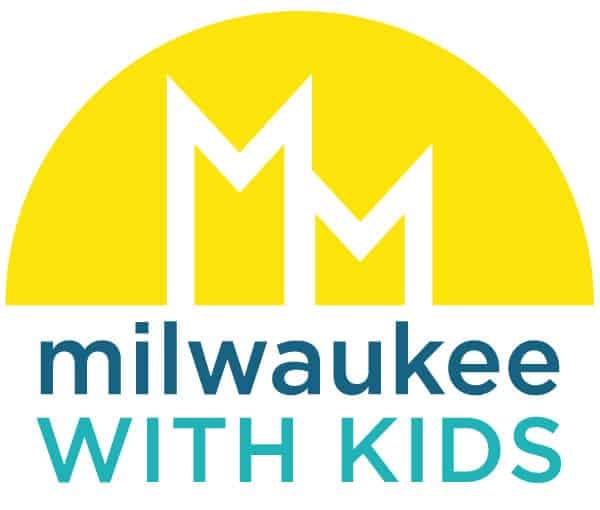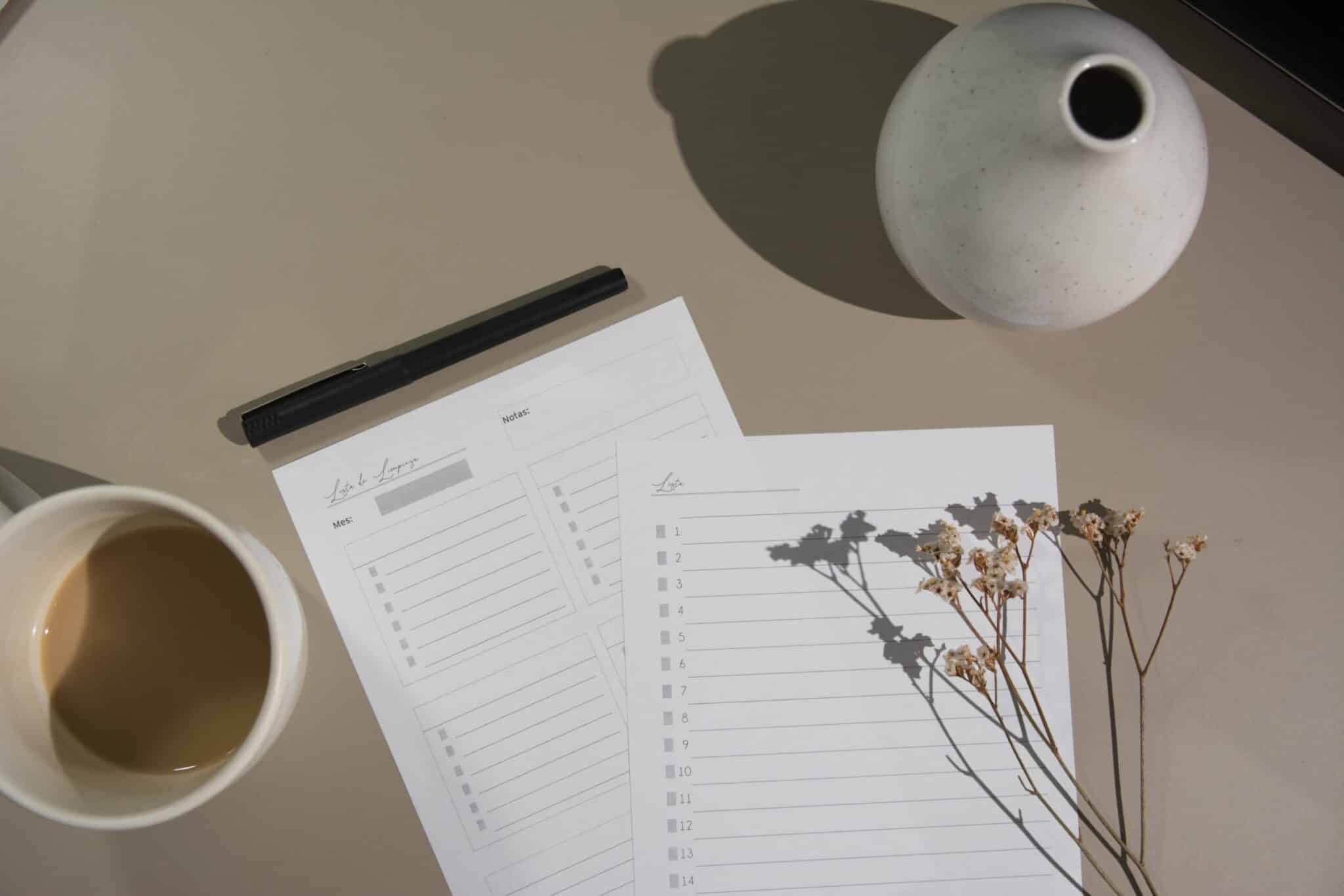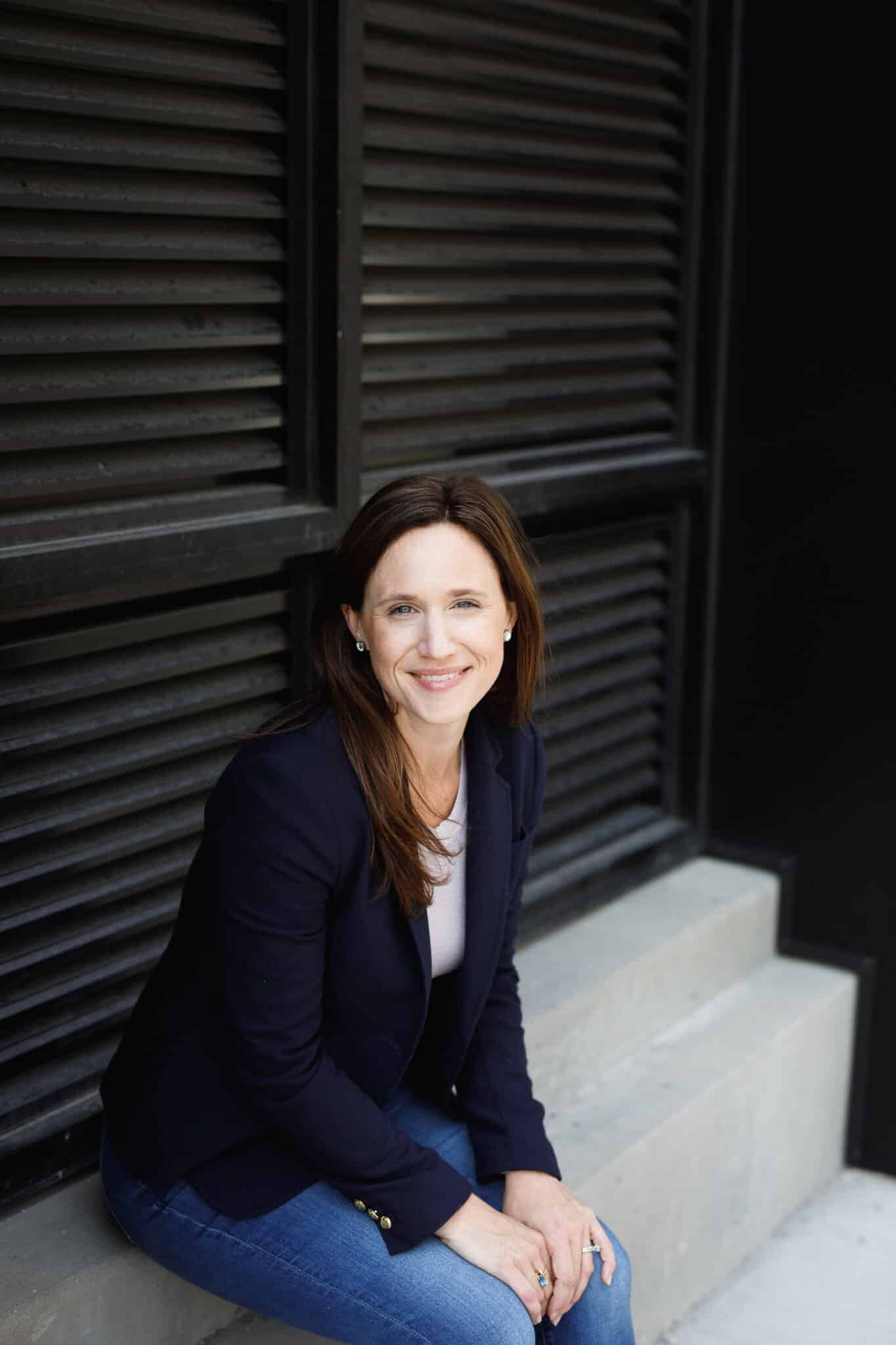
This is the second installment in a series of articles that explore one mother’s journey through the grief of loving a child who has died. It is our hope that by sharing these reflections, we can help grieving parents feel less alone, and help the people who love them better understand what they’re going through. Together, we can create a more supportive culture for bereaved parents.
The day my planner for 2021 arrived in the mail, I was too afraid to open it.
I had wondered for a long time how I would feel about this day. Once, I’d considered myself a planning geek. I might have four or five planning notebooks at any given moment: one for the kids, one for me, one for menu-planning, one for long-term projects, one for work projects, etc, etc. I used to go into Michaels’ just to flip through the planners, with their bold covers and sets of incentivizing stickers. Maybe it was a holdover from my school days, but they just smelled like promise and opportunity to me: It’s a new year! Who knows what you’ll achieve! Who knows what wonderful new things will happen!
How I ache for that sense of wonder and excitement now.
I remember how excited I was when my planner came last year. I couldn’t wait to open the box (I never can). I pay for the fancy customizable kind, with spaces for spiritual reflection and menus and budgeting and personal growth. Seriously, I couldn’t get enough of this stuff.
And last year was an especially exciting year for me: 2020 was going to be the year of Baby #4. The night the planner came, I sat down and diligently copied all my appointment dates into the monthly grids, my due date, the kids’ school calendar, my goals for every month.
So, so much of it was baby-related. I wrote down reminders to myself to go through baby clothes. To wipe down our stroller and high chair. To buy a carseat. As if I would forget any of these things! But I was so excited.
On the June overview page, I wrote “New Baby!” in big sloppy letters. In the section listing my personal goals, I debated how I would adjust to having a newborn in the house again, how I would still make time for the other kids, my marriage, my physical and mental health…everything. I was going to balance it all so well. I just had to have a plan.
Needless to say, I was writing this down before coronavirus—before I had even the beginning of a clue what an infamous dark joke 2020 would become.
The first time my planner goes abruptly blank was in March of 2020, right around the Jewish holiday of Purim—which, with its playful costumes and goodie bag exchanges, is normally one of the most fun and happy days in our calendar. Instead, I remember whispered conversations among friends about whether or not to close schools, and a sense of dread I did not understand. I remember showing up to our synagogue on the day of Purim itself – as it turns out, the last time I would attend synagogue in 2020 – in tears, already overwhelmed and anxious, even though i had no idea yet even what I—or the rest of the world—would be facing.
The next few months are too painful for me to even look back on. But I don’t need to look to remember the desperation of those pages: scratchy black lines through all my best-laid plans, hastily scrawled schedules in marker or crayon or whatever writing utensils my kids hadn’t commandeered, question marks everywhere. Eventually I came up with a rigorous schedule (remember when we were all doing those color-blocked homeschool schedules?) broken into half-hour increments.
I was so determined to succeed. I was so determined to maintain control. And discipline. I was so determined that we would all get through it in one piece.
And then the curveball I never saw coming, in a year that only threw curveballs: we didn’t get through it in one piece. We didn’t all make it. Suddenly, nonsensically, the baby I was days away from bringing home was dead. Then buried. Then only a memory.
The summer of 2020 went blank for me. In my head, in my planner. I remember parts of it, but most is just white noise. I didn’t write in my planner. I didn’t make plans. For the first time in my life, there seemed to be no point in making plans. Why bother to make plans in a world where life can turn upside down in minutes? Why bother to make plans in a world where healthy babies die?
One of my favorite songs contains a line that I’ve always loved, but I don’t think truly understood, until this year: “Every plan is just a tiny prayer to Father Time.” We make plans because they give us the illusion of control—the illusion that we can shape our own fate. But what power do we truly have over the things that matter?
Everything I thought I knew felt like a lie. Everything I had ever planned seemed laughably naive, almost cute. Who was I to have goals, for myself or anyone else? I hadn’t even been able to keep my own baby alive—the one thing that had seemed so automatic, such a given, that I would never even have written it down. The one thing that seemed as simple as breathing.
In my darkest days, it felt like the one thing, the only thing, of all that miserable spring and summer that had really mattered. And the control and discipline I had been so proud of cultivating had meant nothing then. So what was the point?
I don’t remember when I took my 2020 planner off the bookshelf again. I think it was September. My kids were back in school and there were dates and lists I needed to remember again. The holidays were coming up. How surreal: my baby was dead, but there would still be holidays to cook for. My baby was dead, but I still needed to buy groceries and get my car’s oil changed. The world didn’t stop. And Lord knows my ability to remember things on my own hadn’t improved.
Might as well write it down on a page that already has the date on it, I remember thinking.
I carefully did not look back at the blank months. I still haven’t.
As the months went on, little by little, bits of my old self crept back on to the pages. When my kids’ school temporarily closed for corona and we were stuck at home again, I wrote a little list of positive thinking mantras for myself, just as I would have done earlier in the year, before my daughter’s death.
On the back page of the month of November, I brainstormed about who I wanted to be as a person. Not what I wanted to be—a successful author, a loving and present mother to four children, an incredible wife, things I now knew would never be entirely in my power—but who I wanted to be: someone who saw beauty in the world, someone who felt joy, someone who loved and cherished the people in her life, someone who could cry and laugh in the same heartbeat, someone who lived a life worth living, no matter what that life looked like.
I wrote these things down as a reminder to myself, on the days when I felt like I could never become that person, because all I could imagine was the person I felt like in that moment: a person who had been broken, completely, irreversibly, forever.
I wrote them down because I know now that i can control nothing at all in my life, except, possibly, this.
But I won’t lie: despite all of that, it still took me until the middle of January to open my 2021 planner. And I am still more afraid than excited for what is to come.
I still struggle with that sense of powerlessness. I am afraid to write down my hopes and dreams because I can’t bear the thought of striking them through again. I can’t bear the thought of that total blankness.
I want to embrace this new year. I want to live it to its fullest.
But I am still so afraid each time I open the book.
Perel Skier Hecht is a freelance writer and editor. She lives with her husband, two rambunctious boys and one very precocious daughter in Milwaukee. In June, Perel’s younger daughter, Menucha, was born without a heartbeat three weeks before her due date. Perel has been writing about her struggle to make sense of life without her baby at her site, Still Life.
Calie Herbst, Editor-in-Chief of Milwaukee With Kids, has spent over a decade combining her experiences as a parent of three to create a hub for Milwaukee’s family adventures.
Her decade-long teaching career in Milwaukee Public Schools and academic background, including a Master’s in Teaching from Marquette University and dual B.A.s in Sociology and Spanish from the University of Wisconsin – Madison, fuel her passion for inclusive and engaging family content.
Calie is also a recognized voice in local media, contributing to WISN Channel 12 News, WTMJ Wisconsin Morning News, Fox 6’s Real Milwaukee, and B93.3.
Discover more about Calie’s journey and editorial approach on her About Page and Editorial Policy Page.









